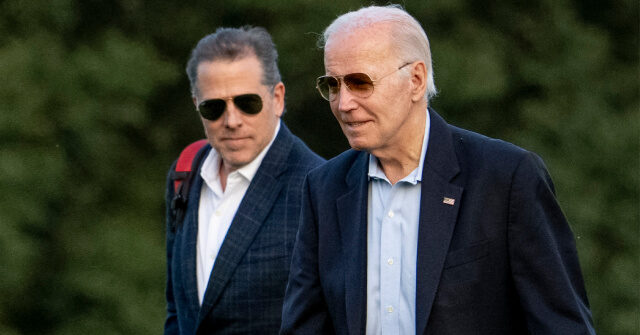A recent YouGov poll has revealed that a significant 64% of Democrats approve of President Joe Biden’s decision to pardon his son, Hunter Biden, while only 21% disapprove. The poll indicates that the majority of Democratic supporters align with the president’s rationale for the pardon, which hinges on the belief that Hunter’s criminal activities, specifically his tax and gun-related offenses, are largely attributable to his struggles with addiction. President Biden has further asserted that his son was unjustly targeted in the legal system due to political motivations, a claim that has been met with skepticism by many outside the Democratic base.
In contrast to the support Biden enjoys among party loyalists, wider public sentiment appears less favorable. A notable 53% of independent voters disapprove of the pardon, suggesting that Biden’s justifications resonate primarily with Democrats and not the broader electorate. This division highlights potential vulnerabilities for the Democratic party as it navigates public perception of its leadership and policy decisions, particularly in the face of growing skepticism from independents who are critical in electoral outcomes.
Interestingly, there seems to be a disparity within the Democratic party itself regarding approval of the president compared to his actions. According to Civiqs polling, 78% of Democrats express approval of Joe Biden as a leader, which is significantly higher than the 64% who support the pardon for his son, indicating that while they support the president, there is some hesitation about his specific decisions, particularly those involving family matters.
Overall, the sentiment surrounding Biden’s pardon of Hunter Biden is largely negative among the general population. The same Civiqs data revealed that only 34% of Americans approved of the pardon, against 50% who disapprove. Such figures point to a disconnect between the Democratic party’s base and broader public opinion, emphasizing the challenges Biden may face as he attempts to justify this controversial decision to a wider audience that appears unconvinced.
The implications of the pardoning decision stretch beyond mere statistics; they might affect Biden’s support among crucial voter demographics as he gears up for future political contests. With only 37% of Americans approving of Biden’s overall performance, and 55% disapproving according to the same Civiqs poll, these numbers illustrate a deteriorating approval rating that could complicate the president’s ability to rally support for his agenda moving forward.
In summary, while there is a clear majority support for Joe Biden’s pardon of Hunter Biden among Democrats, the more significant problems arise from the independent and overall public disapproval. Comparative approval ratings reveal a troubling narrative for the president; although he maintains strong backing from his party, the decision to pardon his son contributes to a broader image of dissatisfaction among the electorate. The disparity in support within the Democratic base, coupled with unfavorable public reaction, suggests that the president will have to work diligently to unify his support and restore faith among independent voters as he continues to govern.

